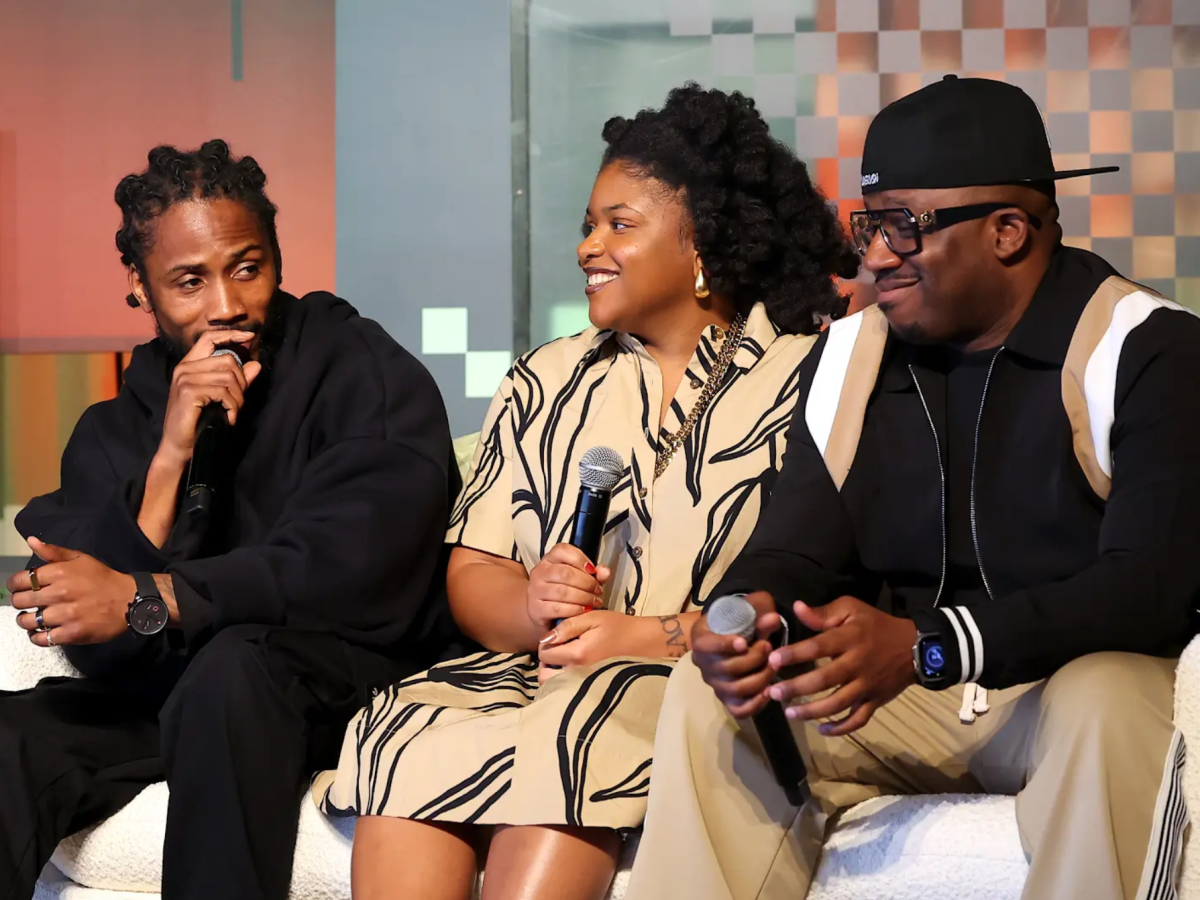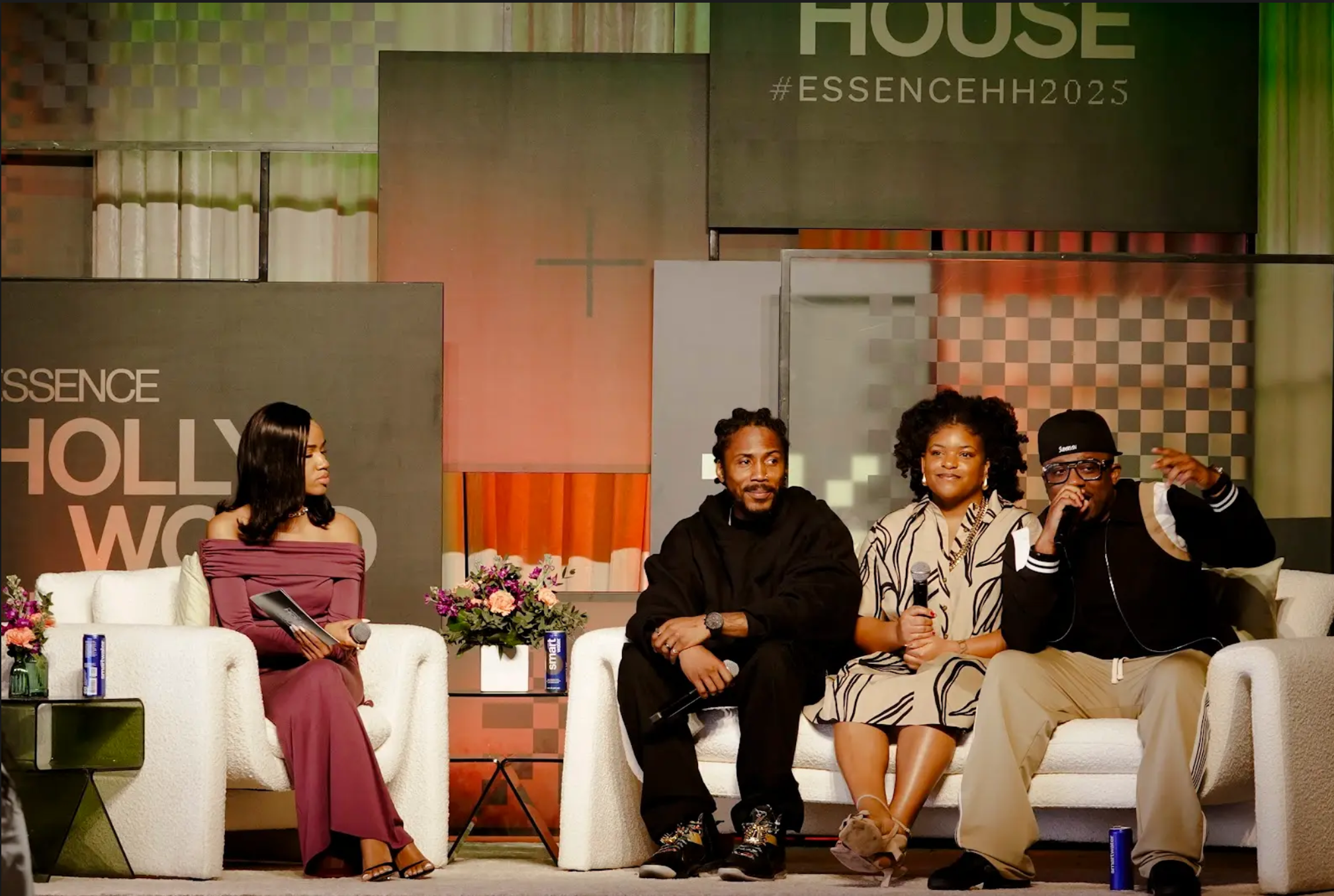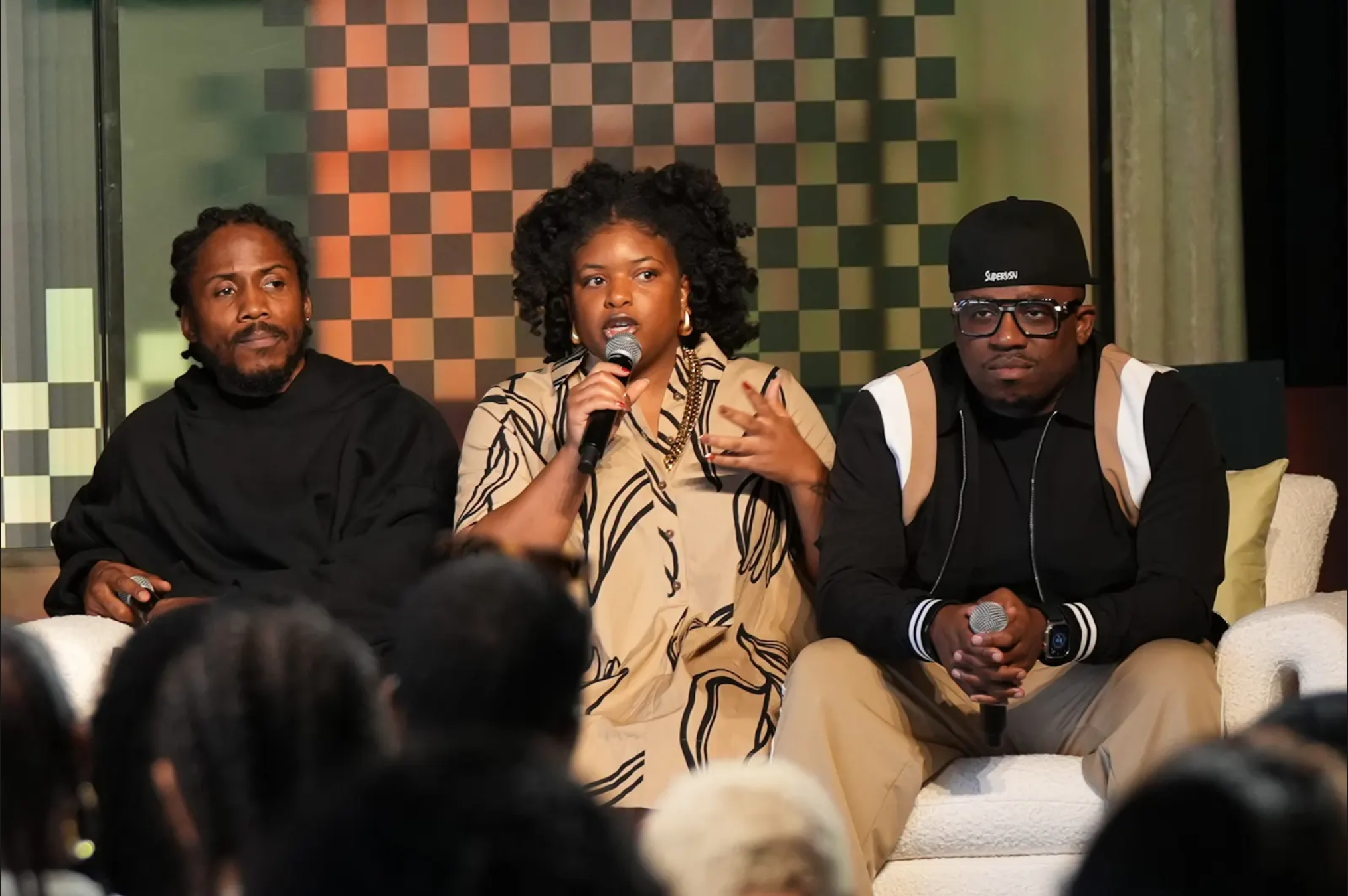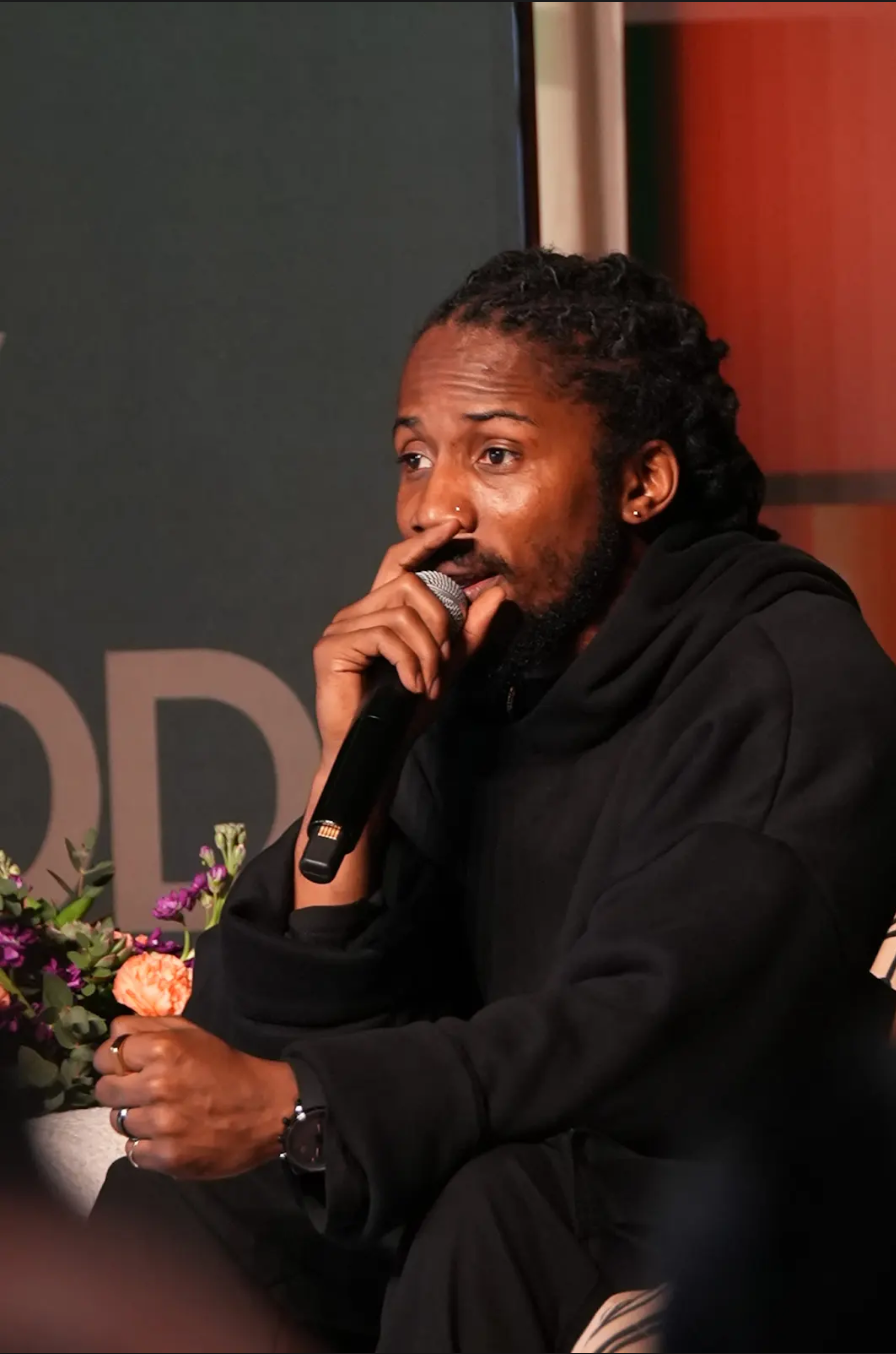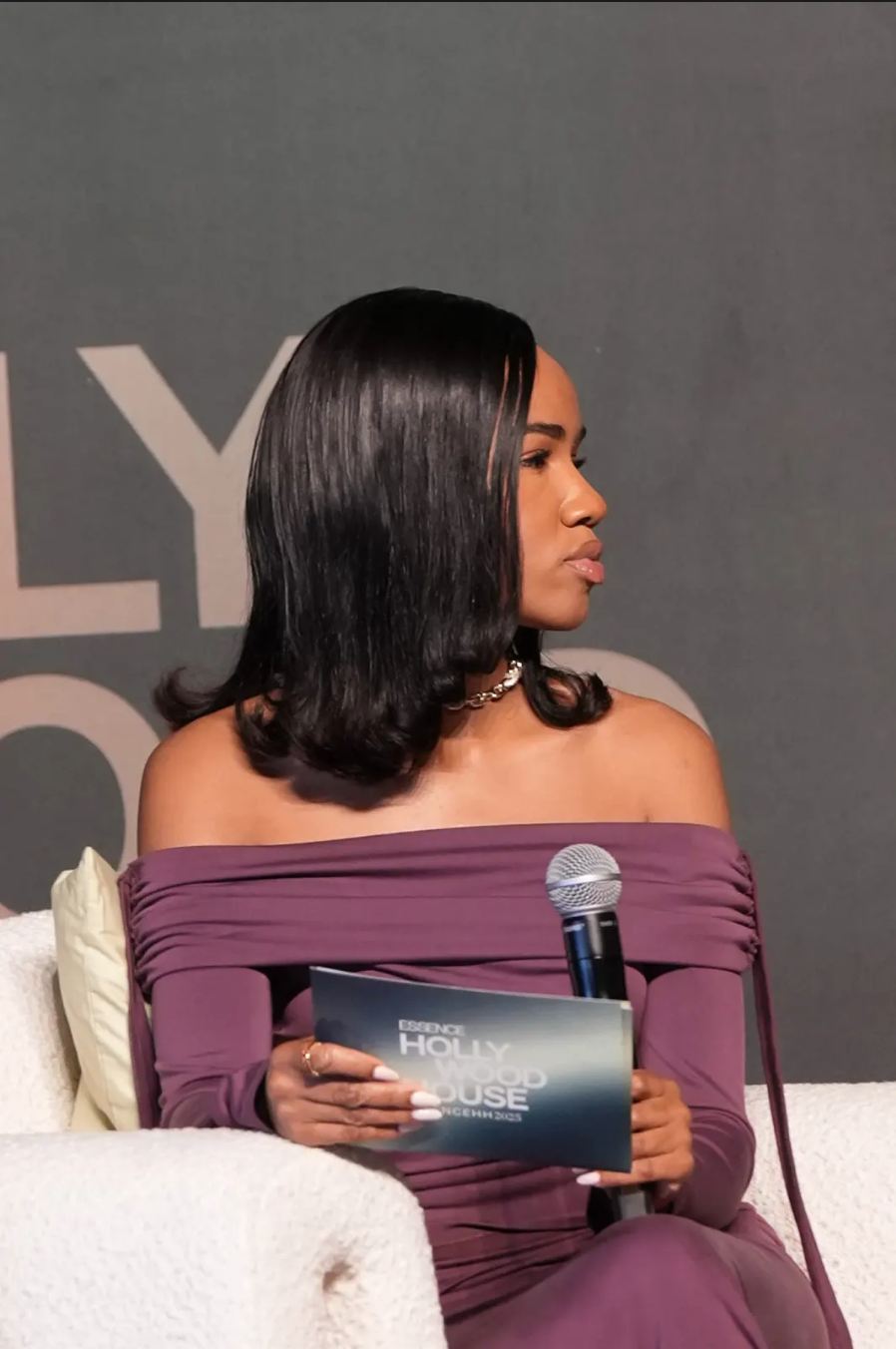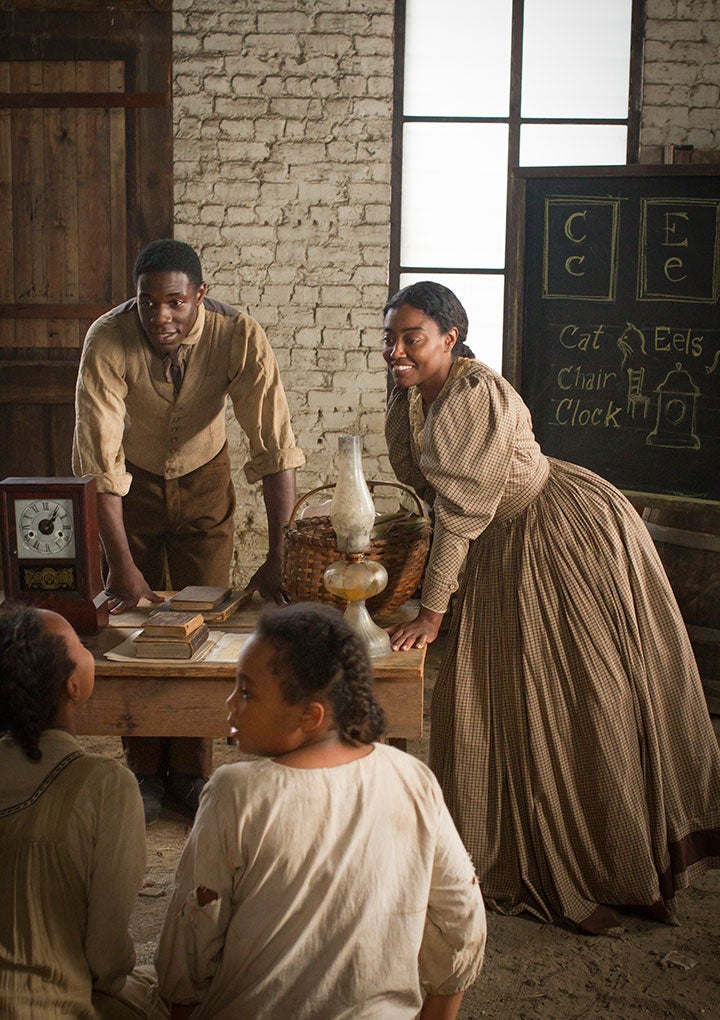
Four years ago, the controversial cinematic debate over 12 Years a Slave and Django Unchained (both won Oscars) raged around the overuse of slave narratives in Hollywood. Cineastes argued about all the other African-American stories to be told in lieu of depicting blacks being whipped, chained and subservient to white supremacy yet again. (Tinseltown’s tepid response? Greenlighting the Roots reboot.) But a more positivist mining of the past is possible. As we all anxiously await actor-director Nate Parker’s The Birth of a Nation, about the slave rebellion of Nat Turner, PBS launched Mercy Street, a historical medical drama set during the Civil War.
Based at the Mansion House Hospital in Alexandria, Virginia, a subplot centering on the relationship between Mercy Street freedman Samuel Diggs (McKinley Belcher III) and laundress Aurelia Johnson (Shalita Grant) fired up fans and critics. (“[T]he black characters’ story lines… tend to be those that generate real emotion,” said The New York Times.) The period drama added Tony-winning actress Patina Miller to next year’s upcoming season two, portraying abolitionist Charlotte Jenkins.
Patina Miller and McKinley Belcher III recently took a break on the rainy set of episode three to speak about Harriet Tubman, historical accuracy, and the “contraband” blacks who escaped enslavement.
Tell us all about Mercy Street.
Patina Miller: So basically, Mercy is based off of the doctors and all of those helping during the Civil War. But it involves a lot of details of how women played a role in that—being able to be around the soldiers and the wounded, assisting the doctors and how they were coming up with new techniques. They were just discovering all of these things. That’s basically what the first season is about.
Second season, I’m excited because it starts to really bring in the contraband story. Contraband history was a huge part of the Civil War at that time—“contrabands” meaning spoils of war. They were runaway slaves who had come up to the North trying to find refuge. And so my character, when she’s introduced, she’s been a runaway slave for 10 years and comes back to town 10 years later. She’s now working for the New England Freedmen’s Aid Society, where her goal is to basically acclimate all of the newly freed slaves into the life. Making sure they can read, they can write, that they’re in charge of themselves, that they can find a better life for themselves.
My character is based off of a couple of historical figures, but the most prominent one is [abolitionist] Harriet Jacobs. I feel so bad that I didn’t really know as much about Harriet Jacobs. I’ve been going through so much research, knowing her life of escaping slavery and hiding out in her attic for seven years. She really became a huge activist with this cause. One of the things about her and my character is, they’re really focused on making sure that these newly freed slaves can make their way in society, not backing down to anyone, not being afraid to speak up. So my character comes in with a lot of energy. She’s this black woman from the North who comes back down to the South to deal with this.
McKinley Belcher III: [Mercy Street is] set in Alexandria, in the Union-occupied South. I think just the setting itself is a unique opportunity to have both North and South, both free and enslaved, white, black, women and men all together. It’s an actual sort of pressure cooker for revealing what people truly have inside. And that’s one of the things that’s really exciting to me about doing this show.
A lot of movies about the Civil War focus on the battlefield. But I feel this show does a really good job of taking a personal perspective; you get this really diverse group of people and see what the war felt from like a personal perspective. You get to feel the beating heart of it all. I also was excited about playing a freedman at this time. We often see the perspective from the enslaved side. But what was it like for a man from Philadelphia who aspires to be a doctor to live in this time?
Tell me about the personal chemistry, the dynamic, between your characters.
PM: Well, our dynamic at first is a funny one. I think we both respect one another. He kinda doesn’t really know… I guess he knows why I’m here, but the way that I come in, with all this energy, strong and asserting myself in this way, he’s a little thrown off by it. She is so strong. She is a contraband, and so she’s a very different type of woman—a woman who has it together, or seemingly has it together. And there’s a camaraderie between the two of them as well because he helps her take care of these people that have been displaced.
MB: That’s one of the exciting journeys for Samuel this season. Because I spent the first season spending a lot of my energy trying to forge a relationship with Aurelia Johnson, who was played by Shalita Grant. And I think this season he has to learn to let that love that he found, that was so treasured, let that go. And Patina enters my life as Charlotte. It’s interesting—I feel like the roles have been reversed, so that he now has to find a way to open his heart and to heal and also allow for the growth that he can find with this new woman. I feel like she challenges him in a very real way.
How did you research Harriet Jacobs?
PM: A lot of times, Harriet Tubman is the one that we think of the most. Harriet Jacobs, her life [is also] sort of really powerful. She was the first slave account of a female. She wrote her own book, Incidents in the Life of a Slave Girl, a firsthand account of what she experienced in bondage up until opening up her own freedman’s school here in Alexandria. And it’s so deep, her whole story. Running away from her master, in her grandmother’s house for seven years hiding out, I can’t imagine. And watching her kids from down below. She talks about that time of missing them but knowing that the best thing for them was to be away. And all that she fought for: going up to the North and constantly looking over her shoulder because she was so worried of being captured again. And finally buying her freedom, giving back and teaching herself to read. It was a very harrowing story for me.
My character Charlotte rode to freedom on Harriet Tubman’s line. So Harriet Tubman for Charlotte is a very important figure. She is kinda why she does what she does. She says, “She’s the one who taught me how to give.” And so for Charlotte, having someone like that who’s so selfless to help do that for her people, Harriet Tubman is a huge inspiration to Charlotte.
WANT MORE FROM ESSENCE? Subscribe to our daily newsletter for the latest in hair, beauty, style and celebrity news.





